“The board is set, the pieces are moving. We come to it at last—the great battle of our time.” – Gandalf
Over the past two weeks we’ve traced the pilgrimage of Middle-earth—from the humble beginnings of The Fellowship of the Ring to the shadowed struggles of The Two Towers. Now, we arrive at Tolkien’s grand finale: The Return of the King.
This is the volume where long simmering promises come to fulfillment. Aragorn steps forward as the hidden king revealed, claiming his crown to lead a people in their darkest hour. The great battle of Pelennor Fields erupts in both terror and triumph, as ordinary figures—Éowyn, Merry, even Pippin—rise into unexpected courage. Gandalf steadies the city of Minas Tirith, holding back despair with wisdom and light.
And at the heart of it all, Frodo and Sam stumble toward Mount Doom. Their path is marked by betrayal, exhaustion, and the crushing weight of the Ring. Frodo falters, and the task is too great for him alone—but love, loyalty, and even Gollum’s tragic obsession bring about the Ring’s destruction. Evil collapses, the King is crowned, and Middle earth is renewed.
The Return of the King is about endings and beginnings—about sacrifice that births renewal, and hope that outlives despair. In both Tolkien’s pages and Peter Jackson’s adaption we find echoes of the gospel story: the true King who returns, the victory won through weakness, and the bittersweet glory of a world made new.
The final volume of The Lord of the Rings is not merely about battles and victories; it is about fulfillment. If The Fellowship of the Ring was about accepting the burden, and The Two Towers about enduring the struggle, then The Return of the King is about the consummation of hope, the restoration of the true king, and the renewal of a broken world.
J.R.R. Tolkien once described the Christian story as a “eucatastrophe”—a sudden, joyous turn that brings redemption out of tragedy. In both novel and film, The Return of the King embodies that vision. It shows us that even in apparent defeat, grace prevails, and that the greatest power is not domination but sacrificial love.
At the heart of the story is Aragorn, who finally steps into his destiny as king. His humility throughout the trilogy—serving as ranger, healer, and protector before claiming the throne—sets him apart from worldly rulers. He does not grasp at power but receives it as vocation.
This echoes the biblical vision of kingship fulfilled in Christ. Jesus, too, entered not in triumph but in humility—washing feet, carrying a cross, wearing a crown of thorns. True authority, Tolkien reminds us, is rooted in service. Aragorn’s coronation scene in Peter Jackson’s film, with the hymn-like music swelling and the people bowing, evokes Revelation’s vision of Christ, the Lamb who is also the King.
The climax of the Ring’s story comes not in Frodo’s victory but in his failure. At Mount Doom, Frodo cannot let go. He claims the Ring for himself, declaring,
“The Ring is mine!”
And yet salvation comes anyway—through Gollum’s fall, through a providence that weaves even broken choices into redemption. Tolkien here resists any notion that salvation is the triumph of human will. Instead, it is grace: unexpected, undeserved, but decisive.
This reflects the heart of the Gospel. We cannot save ourselves. Even our noblest efforts falter. Yet God’s grace prevails, often through means we could not imagine. Frodo’s failure, paradoxically, becomes the setting for victory—not by his strength, but by mercy.
If Frodo fails, it is Sam who makes his journey possible. His loyalty and love sustain Frodo when despair overtakes him. On the slopes of Mount Doom, Sam utters one of the most Christlike lines in the entire saga:
“I can’t carry it for you, but I can carry you.”
This is Galatians 6:2 demonstrated:
“Carry each other’s burdens, and in this way you will fulfill the law of Christ.”
Sam embodies the sacrificial love that reflects Christ’s command. He does not remove Frodo’s burden, but he shares in it, lifting his friend through love.
Jackson’s film gives this moment unforgettable power, with Sean Astin’s portrayal of Sam staggering under Frodo’s weight, climbing toward the fiery mountain. It is the image of grace made flesh: the strong bearing the weak, love persisting when all else fails.
In Tolkien’s novel, after the great battles are won, the hobbits return to find the Shire corrupted by Saruman’s malice. This episode, absent from Jackson’s film, underscores an important truth: evil is not only “out there.” It can creep into our homes, our communities, our ordinary lives.
The Scouring of the Shire reminds us that the Christian life is not just about grand victories but about daily faithfulness. Even after Christ’s triumph on the cross, we still resist sin in the everyday places of life—our families, our neighborhoods, our habits. The hobbits’ cleansing of their homeland is a call to us: guard the good, resist evil even in its smallest forms, and live faithfully where you are planted.
The story ends with sorrow and joy mingled. Frodo, wounded beyond repair by the burden he has borne, sails into the West with Gandalf and the Elves. Sam returns home to family and peace, yet with tears.
This bittersweet conclusion is profoundly Christian. It acknowledges that life in this world carries scars. Some wounds do not heal this side of eternity. And yet there is hope beyond—the Grey Havens pointing toward the promise of a land without shadow, a place of rest and healing.
Jackson’s film captures this poignantly. The final shot of Sam returning home, closing the door, and simply saying, “Well, I’m back,” holds the weight of both endings: Frodo’s departure into mystery and Sam’s faithful return to ordinary life. Heaven and earth, longing and contentment, sorrow and hope all meet in this final scene.
The Return of the King closes Tolkien’s great saga, but it also opens the heart to hope. Evil is real, but it does not win. Failure is real, but grace is stronger. Sacrifice is costly, but it leads to renewal.
For Christians, the echoes are clear. Christ is the true King, humble yet triumphant. Salvation is not our achievement but God’s gift. Our calling is to bear one another’s burdens in love. Evil must be resisted in daily life, even after the great victory has been won. And beyond this world’s sorrows lies the promise of renewal—the new heavens and the new earth. This promise is the heartbeat of Christian hope: the day when sorrow ends, death will die, and God’s new creation will be revealed in fullness.
"He will wipe every tear from their eyes. There will be no more death or mourning or crying or pain, for the old order of things has passed away." Revelation 21:4
Peter Jackson gives us a foretaste of this in the Grey Havens scene. Frodo, scarred and weary from his long burden, steps aboard the ship bound for the Undying Lands. His pain, his wounds, and his sorrow are left behind. It is a cinematic echo of Revelation’s vision: a passage from grief into healing, from exile into homecoming.
Tolkien called the Gospel “the Great Story” that all stories echo. In The Return of the King, he gives us one of the clearest echoes: a tale of hope beyond despair, light beyond darkness, life beyond death.
Our pilgrimage will not end in despair but in joy. Whatever burdens we now carry, they will not have the final word.
Press on in hope, for Christ the King is making all things new. And every small act of faithfulness today points toward that promised tomorrow.
But as Tolkien reminds us, endings are also beginnings—the road goes ever on. Next week we’ll gather the lessons of the whole journey in one final reflection.


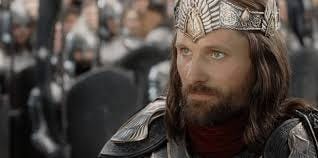
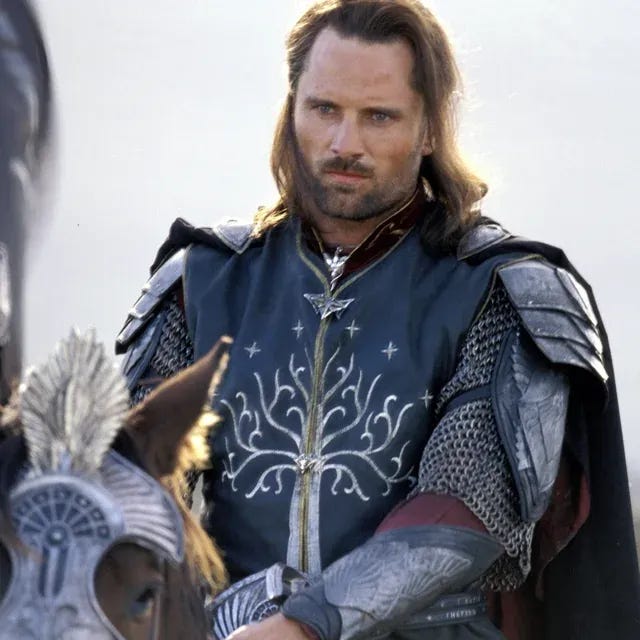
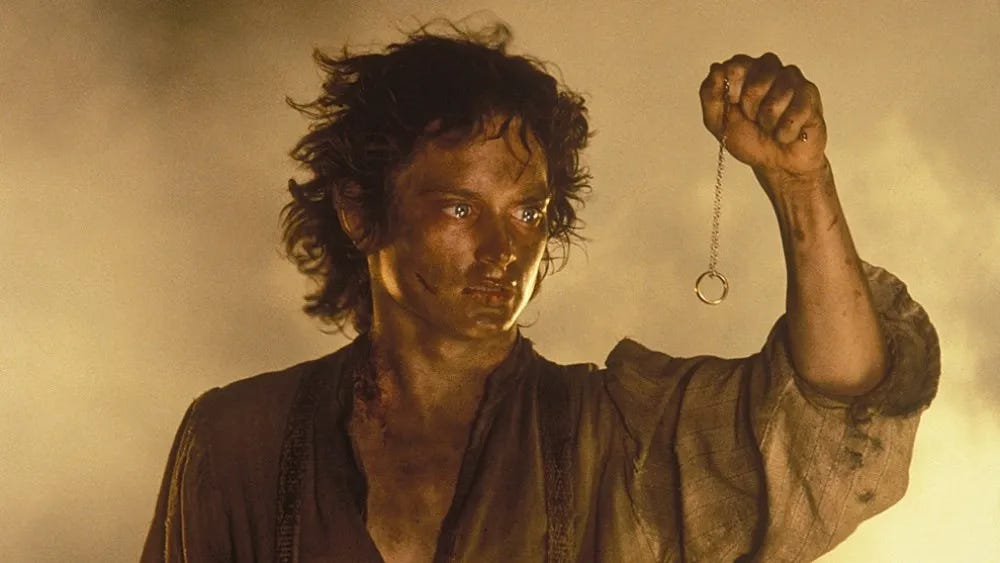
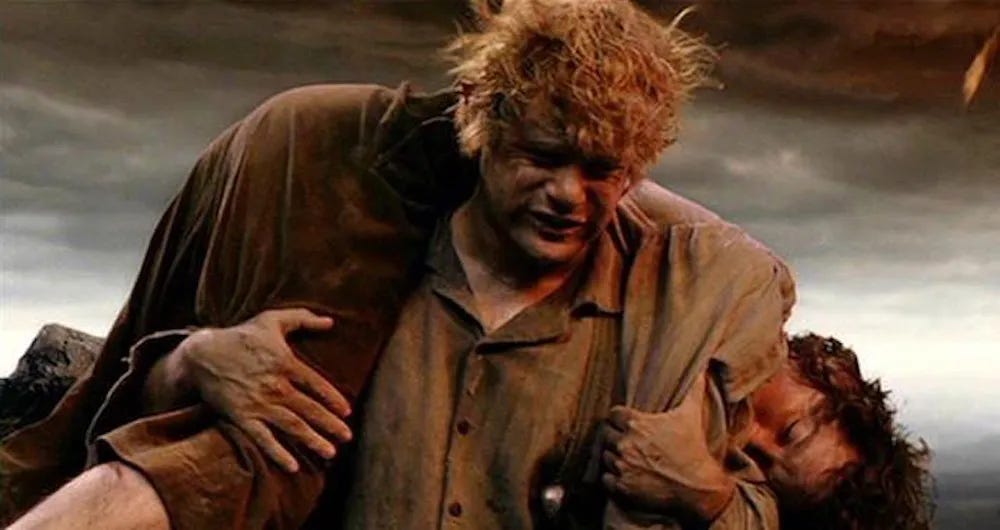
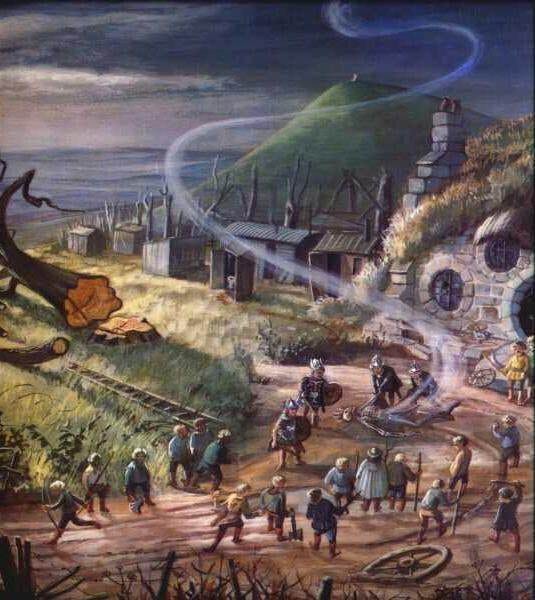
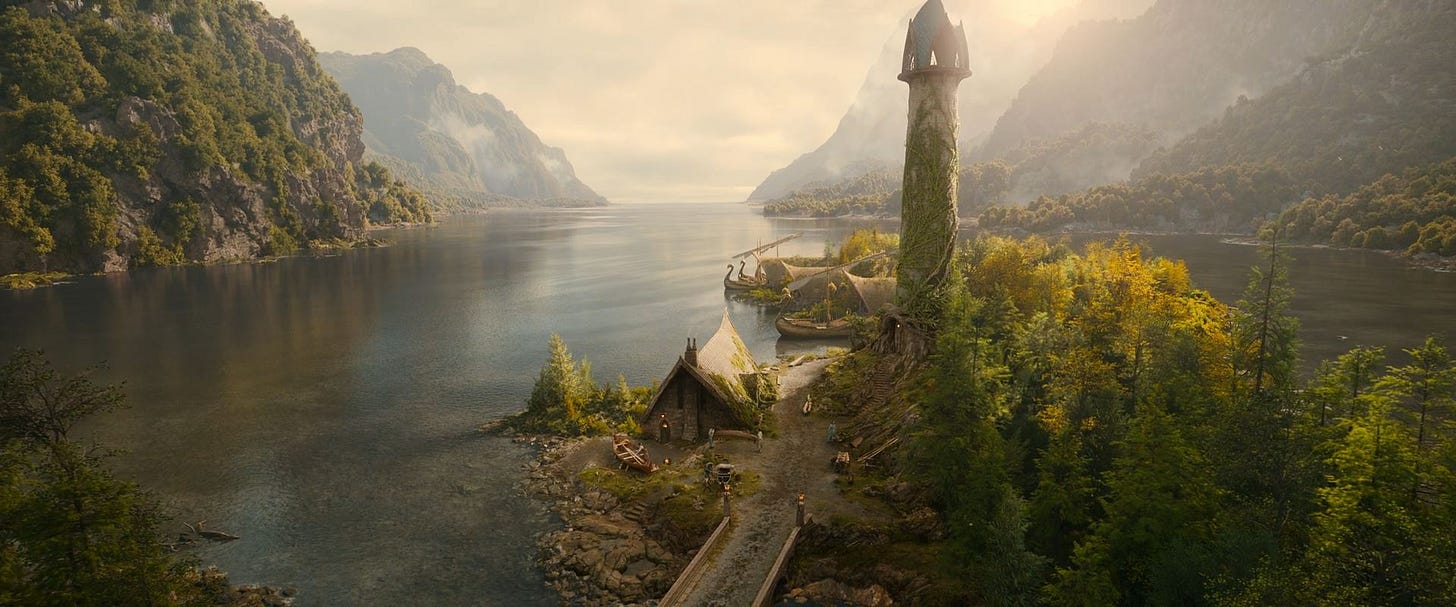
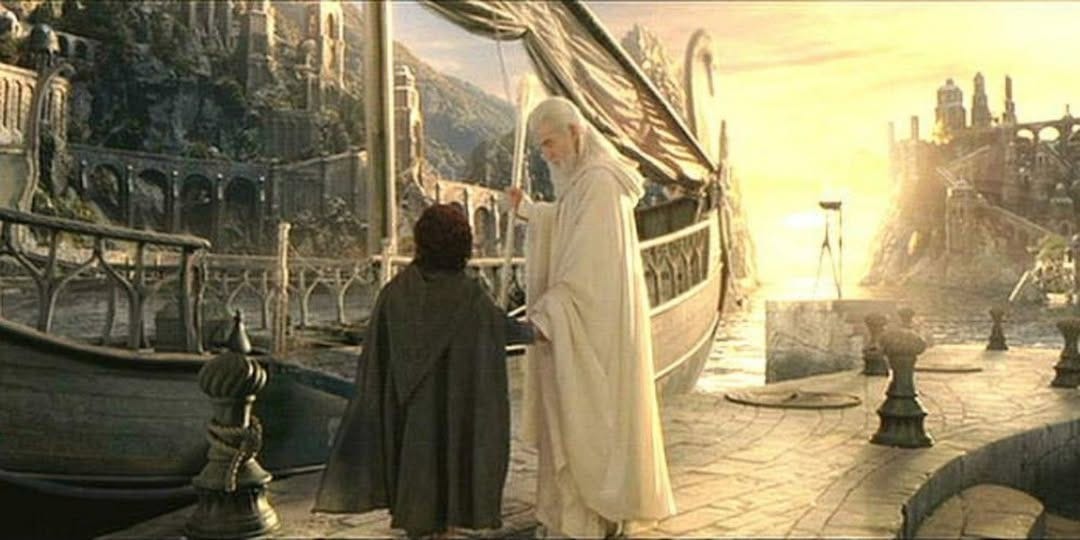
I’ve loved this whole series! The way you connect Tolkien’s story with the hope we have in Christ is beautiful especially how grace shows up even when we fail. So thankful you’re sharing these, and I’m excited to read your final reflection.